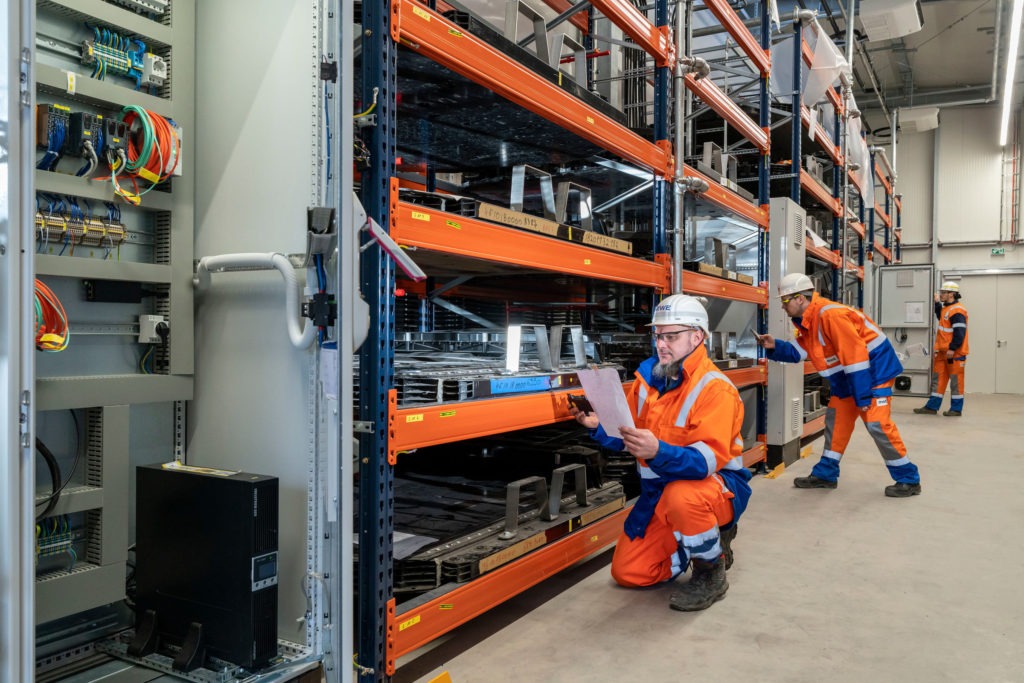Britishvolt enters battery-development agreement and secures key funding
24 January 2022

Britishvolt (BV) has entered a two-year, multi-million-pound agreement with the UK’s Battery Industrialisation Centre (UKBIC). The pair will develop, assemble, and manufacture BV’s next-generation sample cells for mass production and commercialisation.
‘UKBIC is an essential ingredient in BV’s accelerated roadmap to market, providing a platform and environment that delivers high-quality development cells in a time period that would be almost impossible in other territories. We are extremely pleased with the service offered by UKBIC and the promising results we are seeing,’ said Graham Hoare, BV president of global operations.
The UK government is supporting the establishment of the gigafactory through its Automotive transformation Fund. This opened up a significant funding commitment through the creation of a long-term partnership by logistics fund specialists Tritax and investment group abrdn to deliver £1.7 billion (€2.2 billion) in private funding.
United with UKBIC
BV and UKBIC will first focus on high-nickel, increased energy-density materials to produce and test batteries with greater performance and range. The company has already developed its first production intent next-generation lithium-ion cells, using locally-produced intellectual property.
Opened in July last year, the UKBIC is a publicly-funded national battery-development facility. It provides scaling and upskilling services to manufacturers, entrepreneurs, researchers, and educators. BV’s advanced development cells built and tested at UKBIC towards the end of last year have already yielded plenty of promise for future production.
Hoare explained that by working with customers early on, greater flexibility and specific attributes to suit application requirements could be offered. Calling it a ‘vital USP’, he said it signalled the age of ‘off-the-peg’ battery manufacturing is no longer fitting for all.
‘This is further endorsement of the work the UK Government has done to help develop the world’s best battery ecosystem and accelerate Britain into pole position in Europe,’ said Hoare. ‘Low-carbon, sustainable battery cells, and associated R&D, are the essential ingredients on the glidepath to net zero. Only responsibly-produced batteries will lead to a successful energy transition.’
‘We are delighted to be entering into a two-year, multimillion pound agreement with Britishvolt to develop, assemble and manufacture their next generation sample cells for mass production and commercialisation,’ said Jeff Pratt, UKBIC managing director. ‘The manufacture of low-carbon battery cells is vital for a successful energy transition to net zero. We are here to support UK companies scaling up their battery production and upskilling their workforce, and we welcome the opportunity to support Britishvolt on their journey.’
Growing gigaplant plans
As BV secures funding from the zero-emission focused ATF, it also gains two new partners: Tritax and abrdn. Tritax is a prominent investor in UK and European logistics real estate, while abrdn is a global investment company.
BV’s Northumberland gigaplant is expected to build enough cells each year for over 300,000 EVs, equivalent to 25% of current UK vehicle production. BV’s upcoming site will also reportedly create 3,000 positions directly, and over 5,000 indirect roles across the UK’s wider supply chain.
‘The news is the first step in creating a commercialised battery ecosystem, that perfectly aligns with the existing R&D ecosystem. Britishvolt will be the anchor for attracting further sections of the supply chain, be it refining or recycling, to co-locate on the Britishvolt site. This not only shortens supply chains but also allows for partners to access the abundance of renewable energy on-site to truly power low-carbon, sustainable battery production,’ said Peter Rolton BV executive chairman.
The component will be a cornerstone for the UK’s increasingly electrified new-car market. British consumers bought more electric cars in 2021 than in the previous five combined. According to the Advanced Propulsion Centre (APC), by 2030 the UK will need over 90GWh of batteries every year for cars and light-commercial vehicles (LCVs), equating to over 11% of demand across Europe.



